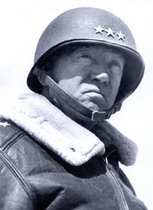skip to main |
skip to sidebar
From the Sooner State:
If the number of concealed-handgun license holders is any indication, robbers may have to worry about getting more than stolen goods during a heist.
With an increasing number of state residents legally packing heat, more robbers may be taking away some hot lead.
More than 54,000 Oklahomans are licensed to carry concealed handguns under the Oklahoma Self-Defense Act, said Jessica Brown, spokeswoman for the Oklahoma State Bureau of Investigation. That number is up from around 31,000 in 2000 and 15,081 in 1996, after the first year of licensing. Once approved, applicants are licensed to carry concealed weapons for five years. After five years, they are required to renew their application.
In the beginning, some people thought a wave of shootings by license holders would occur, but those fears have proved to be unfounded, Brown said.
"There's very little of that, quite frankly," she said. "Most people don't want to hurt each other."
Former state Sen. Frank Shurden, who sponsored the bill that led to the law, said he had tried to get the bill through the Legislature for several years but that fears of more shootings and of a more dangerous work environment for law enforcement officers held it back.
"They didn't have confidence in law-abiding citizens like I did, but they do now," said Shurden, a Democrat from Henryetta. "They claimed that every fender bender would be a shootout."
Shurden said he is pleased with the law's results more than 10 years after it went into effect.
"They (license holders) have to be good, upstanding people. That's one reason it worked so well," he said.
"I've always been of the opinion that when good, law-abiding citizens are armed, we're all safer. I'm real satisfied with the way the law is working."
Robert Welch, a Tulsa concealed-weapon license instructor, and Tulsa Police Officer Jason Willingham both noted that there have been instances in which a license holder has foiled a robbery or other crime.
Last November, a man who Tulsa police say had just committed a burglary, stolen a car and fled from police crashed the car and then accosted a bystander with a knife. The victim, a concealed-handgun license holder, pulled his weapon on the man, prompting him to flee.
In March 2006, a customer with a concealed-handgun license shot an armed man who was attempting to rob a supermarket near 91st Street and Memorial Drive.
This year in the Tulsa area, there have been three shootings -- one fatal -- by people who have concealed-carry licenses. Police say the two shootings in Tulsa were sparked by traffic altercations that became physical and ended with the license holders shooting people they said had physically assaulted them.
In the first shooting, which occurred at 18th Street and Boston Avenue in April, police say a motorist who had to stop for a pedestrian shot the pedestrian's friend during a resulting altercation. The man who was shot was treated at a hospital and released. The motorist was charged with recklessly handling a firearm and has pleaded not guilty.
On June 10, police say a retired security guard fatally shot a man during a road-rage-sparked confrontation in a parking lot in the 1900 block of Riverside Drive. The retired guard told police that he feared for his life when the other man verbally and physically assaulted him. He has not been charged with any crime.
In Muskogee last weekend, police said a pastor who holds a concealed-weapon license shot a man who, along with some juveniles, tried to rob his church's fireworks tent. The minister said he feared for his life and that of the teenager who was watching the tent with him.
The shooting victim was arrested in connection with the burglary attempt after he was released from the hospital, police said.
Willingham said that, in their duties, most police officers rarely come across concealed-handgun license holders.
"Most people who go through the trouble of getting a concealed-carry permit are not committing crimes," he said. "By and large, the people with concealed-carry permits are not the ones we're coming in contact with."
Welch agreed.
"Most goofballs and hot heads don't think to go and get a permit," he said. "Mostly, it's people who are law-abiding in nature."
Brown and Welch said increased exposure to terrorism, war and violent crime through the media may play a role in why more people are arming themselves.
During classes applicants must take before they can obtain a license, they must show that they know how to shoot and properly handle a firearm.
They also are instructed on how to tell a police officer -- should they come into contact with one -- that they have a concealed weapon.
"Do we worry? No," Willingham said. "We know people with concealed-carry permits are not the type of people out there committing crimes. Your gang-bangers, armed robbers -- they're not the ones going through the class and paying the fee."





|